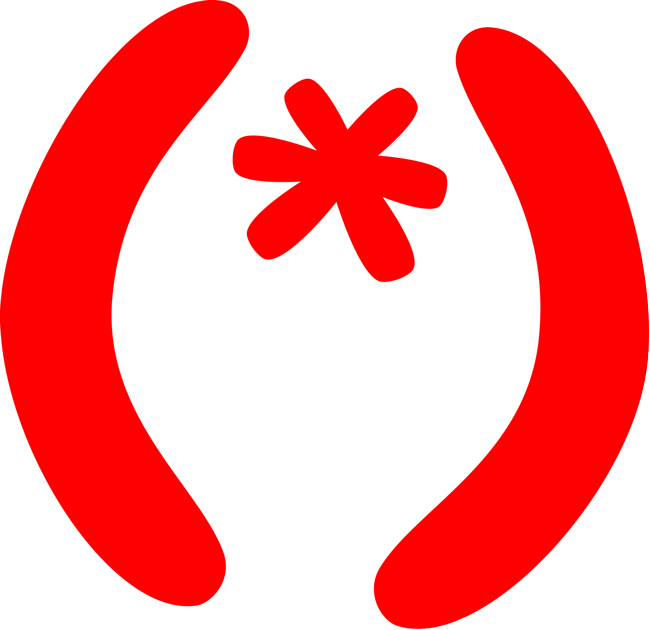L IS FOR LUNA
Words by Mia Uribe Kozlovsky | Illustration by Lara Burity
As a child, Luna marveled at her ability to cultivate a crush on any of the boys in her class. She looked around the playground and identified the personality trait that could attract her to each boy. Arthur for his humor and kindness, Scott for his intensity, George for his passion for chess. These traits easily impressed her as an eight-year-old, but she usually shook it off and narrowed it down to one or two boys to have a crush on, as kids do. Because she went to a K-12 small school, her crush on the most popular, most charismatic, and the smartest boy in her class Simon lasted her entire school career and beyond.
She maintained this adolescent infatuation, but in high school, she realized this ability to cultivate a crush on anyone was not limited to gender. This came about when Luna met Violet. Violet’s spontaneity and uniqueness in the wave of milquetoast personalities attracted Luna. So Luna became Violet’s best friend. Luna consistently asked herself the age-old question, “Do I like her or do I want to be her” with no answers. She copied Violet’s taste in books, music, hobbies, and ambitions. When she found herself fantasizing about Violet, dreaming about touching each other in the shadowy corners of school hallways, Luna admitted her attraction to girls to herself and her parents, coming out as bisexual to a perplexed father and knowing mother. Luna never told her friend, especially not after witnessing Violet’s easy attraction to and from boys, but also due to their close friendship.
Luna first kissed a boy at sixteen outside of a club in Spain. She traveled with Violet and their mutual friend Michelle to Michelle’s parent’s house in the Southern Spanish mountains. There they stayed out late drinking and dancing. One night, having met a few boys, Luna’s friends encouraged her to go off with a boy who had shown a clear interest in her. She had wanted to get her first kiss out of the way and she did. Who wants to be sixteen and unkissed, and therefore undesirable? The boy and girl found a secluded area overlooking the white-walled, clay-tile roofed town, smoked his cigarettes, and made out. Nothing special, nothing horrid. When they pulled apart, she could see his own name tattooed in big capital letters along the length of his left forearm: F R A N C I S C O. Told in a certain light, the story has its romantic charm.
Afterwards, Luna could not explain the shame burning in her. She decided she hated Francisco for kissing her, and scrubbed her hands and teeth raw to get rid of his cigarette stench. She hated herself for kissing him. She hated that she had wanted to get some sexuality milestone out of the way. Thinking of the story still brings her shame.
Inevitably, Luna felt this same shame in the first semester of college. She had not engaged in any sexual or romantic relationships in high school. She only fostered these long-term crushes on two people whose personalities she esteemed, but never made her admiration known. As a freshman, with an entirely new set of classmates for the first time in eleven years, she didn’t understand why she couldn’t fall into the much-lauded hook-up culture. Like Francisco, she found herself going off with a boy at her friends’ urging, and made out with him. Nothing special, nothing horrid. Once again, she left feeling ashamed and confused. Was she a prude, despite her mother’s gentle sex positivity?
She hated herself for kissing him. She hated that she had
wanted to get some sexuality milestone out of the way.
She finds it funny now, all the things she’s explained away just to fit into a compulsively hetero and allosexual worldview. In her college years, her anxiety and depression fully manifested. Luna, and her mother, reasoned; her anxiety keeps her from approaching or having a serious sexual interest in boys. Because she was surrounded by (at the time) majority heterosexual friends who discussed not having any same-sex attraction, she reasoned that her attraction to Violet was a one-time thing. She dismissed her attraction to other girls, too, with, “I want to be them,” or “I want to be their friend.” Purely platonic. Sometimes.
In college, Luna kissed so many different people for so many different reasons. She had sex with a boy she liked and eventually loved. She felt her shame dissipate. She finally felt normal.
But then, the shame grew. She graduated from undergrad four years ago and she has had no romantic interests. Any that may have arisen reminded her of those early childhood ruminations—she could like this person because they have a warm smile and good humor—but she felt no reason to pursue this interest. No spark, no flame, no pull. Nothing of the sexual attraction that her friends describe when they met their romantic partners.
She tried. In between undergrad and grad school, Luna lived in San Antonio, in her childhood home with her parents, just down the street from her grandparents. As her friends quickly coupled, making lifelong commitments to their partners in their mid-twenties, Luna lamented at her inability to find someone. Her mother blamed Luna’s anxiety disorder. Luna blamed her anxiety. Luna’s Mexican-American grandmother tried to set her up with her friends’ sons. Her grandmother spoke longingly of her long-term high school crush Arthur, whom of course her grandmother adored. She wanted Luna to marry him. (Having gone to a small K-12 school, everyone knew everyone, as well as their achievements). He had gone to Columbia for pre-Law and Law School. He was raised Catholic. In a phone conversation, her grandmother would ask, “How is my favorite person? How is Arthur?” Sure, he and Luna kept in touch through social media, but definitely did not have the foundation that her grandmother hoped they’d have.
Once at their house, during lunch, they discussed a family friend who had come out as gay. Her grandparents were staunch democrats, and her mother had pushed them even further left. But. Luna knew it would different if it was their own grandchild. Out of the blue, her grandmother asked, “But you’re straight, right?” and Luna lied and said yes. It felt easier than admitting to the confusion Luna felt. With all the attraction she felt and did not feel towards other people. Above it all, Luna wanted to have a wedding, a family, and kids.
But what did a romantic relationship for her look like?
An answer arose from an expectedly unexpected place. Fanfiction. Browsing through Archive of Our Own, she found an AU: Soulmate within her favorite genre. The main character, a celebrity, facilitated his image of a playboy, knowing he identified as asexual or ace. He had never experienced sexual attraction to anyone, until he met his best friend and developed a sexual interest, leading him to discover he was demisexual.
The internet, for those on the asexuality spectrum, offers networks to bring us out of isolation. Author of Ace: What Asexuality Reveals About Desire, Society, and the Meaning of Sex, Angela Chen, points to the knowledge-making found in asexuality discussion boards and blogs. Because our society centers itself on sex, those of us who do not feel sexual attraction, or a dimmer version of it, must find alternative ways to connect. More importantly, Chen identifies different types of attraction—romantic, aesthetic, sexual—and the different reasons we have sex. All to say, we too often simplify attraction and physical intimacy, underestimating the ambiguity between the attraction that forms friendships and romantic partners.
Luna discovered asexuality and demisexuality.
She didn’t write on discussion boards but researched demisexuality wherever she could. The next few years, she sat on this knowledge, and its growing familiarity. Meditating on her attraction towards people, she either mistook friendly attraction for romantic. Or she projected what she thought others felt towards a person–such as the hottest, and thus most aesthetically attractive, person. No wonder she’d had a crush on a girl she desperately wanted to befriend and the most popular boy in school.
This past week, she finished Aminatou Sow and Ann Friedman’s book Big Friendship: How We Keep Each Other Close, in which the two women discuss the importance of friendship. They cite Chen’s Ace, paralleling the type of attraction we might feel to a potential friend and partner. Luna thinks of her closest friend, who she considers family, with whom she hopes to spend the rest of her life. What does she need a partner for if she has her? She has known Luna intimately for so long, through the hardest years of their lives and the most trying experiences. They have lived across the world from each other. They have lived next door to each other. They write letters and text each other multiple times a day. She understands Luna better than anyone ever has.
And Luna has incredible friends. The people she has allowed into her life leave an irreversible impression on her. She finds herself easily attracted to people she wants to befriend, but still does not understand romantic relationships, or even necessarily her place on the asexuality spectrum. The only long-lasting romantic relationship in her life crumpled under her own expectations, owing to her limited understanding of her own sexuality. Ironically, she feels freer to embrace her attractions as they are rather than twisting them into something they are not. A pressure valve has released and she can just be in love and like with the people close to her. Luna can define her sexuality for herself.


